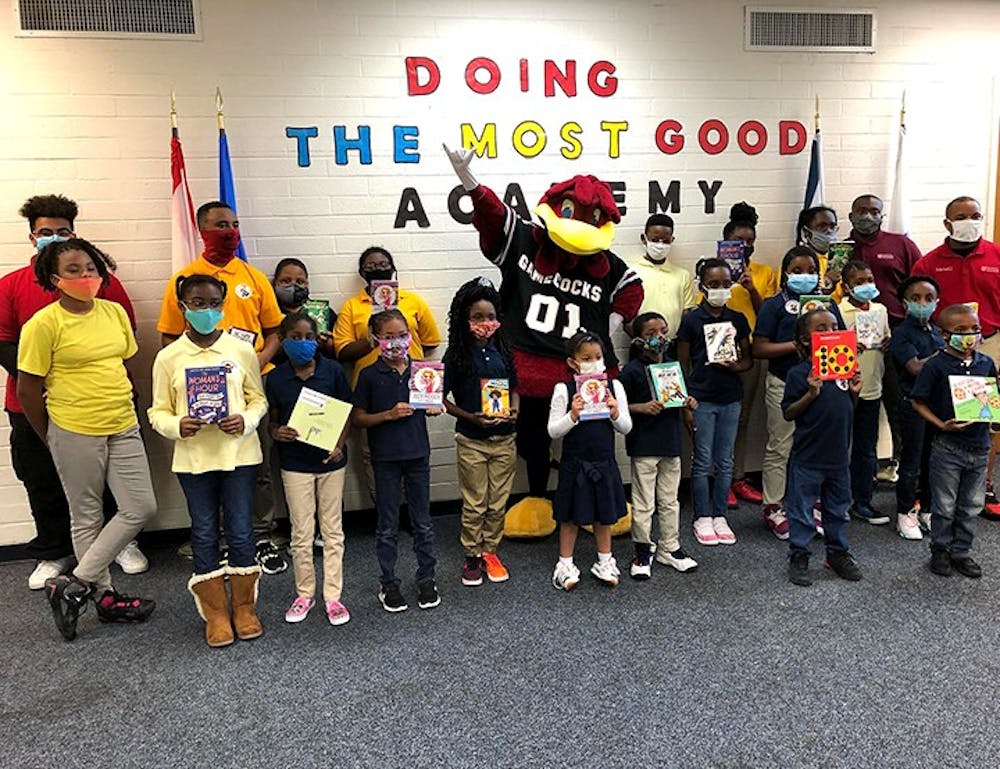Volunteering to read to children and/or donating books is a small step to helping them have a successful future. Reading is so much more than a simple pastime. It helps kids gain essential skills, such as vocabulary building, and enhances their current writing skills.
“Where Books Are All But Nonexistent” by Alia Wong talks about a study done by Susan Neuman, an NYU literacy-education researcher. The study found that “in a middle-class community in Philadelphia, each child had access to 13 books.” However, in another Philadelphia neighborhood with a high poverty rate, “there was only a single age-appropriate book per 300 kids.”
Reading to kids allows them to at least have some sort of access to books and reading so that it becomes more common in their lives.
Having access to books as children can be quite difficult. Some kids are unable to reach public libraries, and sometimes they’re even unable to check out books at school if they have a balance due from previously checked out books. While they might be unable to do anything to help themselves access books, the community can.
Volunteering is such a small act that can help children advance in their current literacy skills so that they can read at their appropriate grade level. This not only helps them now, but it also benefits them throughout the years as they get older and are required to read more complex texts.
Kecia Greenho in “South Carolina still lagging in literacy” states that “right now, only 34 percent of all fourth graders in our state read at grade level. Nationally, we rank 39th in literacy.” Unfortunately, that is a really low number, and something must be done.
Even if one does not have time to go volunteer, the next simple thing to do is to donate books. Donating books allows children to access them at all times and not have to worry about getting to a public library outside of school hours during the year.
According to Greenho, “the kindergarten through fourth grade years are a critical period in the life of a child.” Studies have shown those fourth graders who read proficiently at their grade level are four times more likely to graduate and are at lower risks of incarceration and poverty.
Being able to access books at all times helps encourage them to make reading a habit.
Donating books so they can have an at-home library is beneficial, especially during the summer when access to books might be more difficult. This is as easy as dropping them off at your local Miracle Hill or Goodwill.
Many people might have a bunch of old books that just sit on their shelves. We know how much they meant to us when we read them as kids, so why not donate them to other children so they can have the same experience?
Erika Nichols-Frazer states that "[a]ccording to a 2018 study, 50% of characters in children’s books were white, only 10% were Black, 5% were Latinx, and only 1% were Native American." Inclusivity is key, so encourage those around you to donate as well. This helps amplify diversity and children's ability to relate to what they are reading.
I was able to volunteer at Cocky's Reading Express (CRE), which is a USC program available to all students. CRE is a program that allows volunteers to go to different schools around South Carolina to read to children in preschool through second grade. The kids can then take a book home so they have something new to read.
Due to COVID-19, CRE is no longer traveling, but it is offering opportunities to record yourself reading a book so that it can be sent to multiple classrooms. This is a great opportunity to help your community while still staying safe.
While this type of volunteering might be something new to you, it goes a long way. If you can not volunteer, then donate, and while you’re at it, influence someone else to do so as well.

